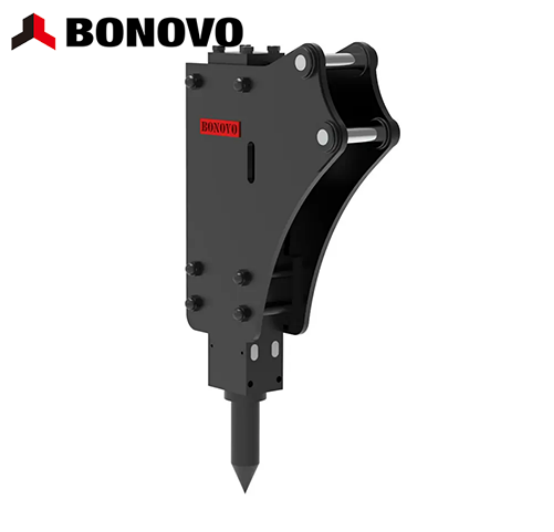Introduction
Blow by in an excavator breaker is another common problem that results to long repair and maintenance, and time-consuming as well as expensive environmental problems. Both the diagnosis of the cause of the failure and the use of effective preventive measures are necessary for increasing the productivity of the equipment and its service life. This article therefore seeks to explain how to go about solving the problem of leakage of oil in excavator breakers, including how to diagnose, find out the causes and practical ways of solving this problem.
Diagnosing Oil Leakage
Visual Inspection
Typically, any leakage problem is best handled by examining the excavator breaker visually so the very first approach is to conduct a visual examination on the piece of equipment. When searching for signs of hydraulic oil leakage on a breaker one should check the breaker surface, hydraulic hoses and hydraulic connection areas. Many a times, focus should be put on parts that are most exposed to wear and tearing incidents.
Pressure Testing
If the above process of inspection fails to identify the leak then undertaking of pressure test is recommended. This test requires the application of some sophisticated tools that check the hydraulic system to see whether there is any pressure loss within the system: an aspect that may show presence of leakage. It is recommended that this test should be carried out with the help of professional technician to avoid wrong results and damages.
Common Causes of Oil Leakage
Worn-out Seals and O-Rings
Seals and O-rings are among the most likely parts that have experience some wear and tear and lead to oil leakage in the excavator breakers. All these need to be connected different parts that move and sand forced to do work, so they wear out over time. It is often possible to lessen or eliminate such leakage problems as the preventive measures are the same such efforts including frequent seals and O-rings inspection and their change when the need arises.
Damaged Hydraulic Hoses
One more expected places to look for oil leakages are hydraulic hoses. These items can be worn down through wear and tear, improper installation, or unfavorable weather conditions. It is also important to do a routine maintenance inspection on hydraulic hoses to assess their condition and change them when necessary.
Improper Installation
It is also clear that a number of hydraulic components not fitted correctly can cause undesirable oil leakage. If one or both of the connectors is not fastened to specification or if there is incorrect routing of the hoses, it may lead to leakage. It may be important in overcoming leakages if correct arrangements are made in fixing the different components.
Preventive Maintenance
More specifically, specific to technical systems, you have regular Inspections and Maintenance.
For the purpose of avoiding oil leakage on excavator breakers, oftentimes lubrication needs to be performed on a routine basis. This includes primary checking of all hydraulic unit points, comprehensive replacement wears on all the parts of the hydraulic system, proper fill up and maintenance of hydraulic oil to desirable levels and quality.
Use of Quality parts
Possible causes of major oil leakage can be reduced by the proper selection of the seals, the O-rings, and hydraulic hoses, which are of better quality. The type of raw material used is of a better quality so that it can be able to withstand the demands of these machines and that they are replaced not often.
Advanced Solutions
Moving from Low Cost Sealers to Improved Sealers
However, where the excavator breakers are still causing oil leaks it is feasible to optimize sealing. These systems are intended for enhancing sealing capabilities although they are sometimes made of higher quality material to avoid rust.
Applications of Hydraulic Fluid Additives
They can also be used alongside hydraulic fluid additives since it increases the operational performance scope of the hydraulic system and decreases the oil loss ratio. It is pertinent to be precise here about the various kinds of additives: some are used for preparing the seals and some others are more useful for reducing friction in the hydraulic system which increases the efficiency of the systems.
Conclusion
However, leakage in any part of the excavator breaker is a complicated issue and so, when the required leakage problems are diagnosed, together with proper maintenance and quality spare parts installation, it will be extremely hard to discover the leakage problem. By adherence of these guidelines, they will also help in improving use of your excavator breaker in its most productive and hence reducing breaks down and maintenance costs frequently. It is therefore necessary to prevent oil leakage from reaching zero percent by completely eliminating every risk factor and mitigating leakages as soon as possible in excavator breakers.

